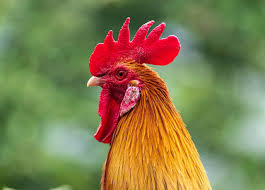Carbaspirin Calcium
Name:
Carbaspirin Calcium
Common Capacity:
- 100g/bag
- 500g/bag
- 1000g/bag (1kg/bag)
Common Concentration:
- 5%
- 10%
Applicable Animals:
Carbaspirin Calcium is the calcium salt of aspirin, belonging to the non-steroidal anti-inflammatory drugs (NSAIDs), possessing antipyretic, analgesic, and anti-inflammatory properties. In veterinary medicine, it is widely used to relieve fever, inflammation, and pain symptoms in animals, especially as an auxiliary treatment after disease infection, stress, or vaccination.
Applicable Animals in Global Animal Husbandry:
- Poultry (Chickens, Ducks, Geese): Primarily used to alleviate fever, depression, reduced feed intake, and respiratory symptoms caused by viral and bacterial infections (e.g., avian influenza, Newcastle disease, infectious bursal disease, Mycoplasma disease, E. coli disease), as well as stress reactions after vaccination.
- Pigs: Primarily used to alleviate fever, malaise, anorexia, and pain due to arthritis caused by viral diseases (e.g., classical swine fever, porcine reproductive and respiratory syndrome, porcine circovirus disease) and bacterial diseases (e.g., streptococcosis, contagious pleuropneumonia, E. coli disease). It can also be used as an auxiliary treatment for post-farrowing inflammation and pain in sows.
- Cattle (Calves): Used to alleviate fever, pain, and inflammatory symptoms caused by respiratory diseases (e.g., pneumonia, shipping fever), intestinal diseases, or rheumatism and arthritis.
Usage and Dosage:
Carbaspirin Calcium is usually administered via drinking water or mixed with feed as a water-soluble powder. The specific dosage should be adjusted based on animal species, body weight, age, disease severity, and product concentration.
Administration via Drinking Water (for 10% concentration product):
- Poultry:
- For Treatment: Add 0.5-1g of this product per liter of drinking water (i.e., 500-1000g per 1000kg of drinking water), for 3-5 consecutive days.
- For Stress Relief, Vaccine Stress: Add 0.3-0.5g of this product per liter of drinking water, for 1-3 consecutive days.
- Pigs:
- For Treatment: Add 0.5-1.5g of this product per liter of drinking water (i.e., 500-1500g per 1000kg of drinking water), or calculate based on 15-30mg per kg body weight, for 3-5 consecutive days.
- Cattle (Calves):
- For Treatment: Calculate based on 10-20mg per kg body weight, dissolved in water or mixed with feed, twice daily, for 3-5 consecutive days.
Administration via Mixed Feed (for 10% concentration product):
- Pigs: Add 1000-2000g of this product per 1000kg of feed, for 3-5 consecutive days.
- Poultry: Add 500-1000g of this product per 1000kg of feed, for 3-5 consecutive days.
Dosage by Growth Stage:
- Piglets/Young Poultry: During stressful stages such as weaning, regrouping, vaccination, and transportation, it can be used to alleviate stress responses and help animals recover quickly.
- Growing-Finishing Period: During high disease seasons or when fever and reduced feed intake occur, it serves as an auxiliary treatment to improve animal comfort and promote feed intake recovery.
- Laying Hens/Breeding Poultry/Breeding Pigs: Used to alleviate symptoms caused by laying stress, reproductive disorders, or febrile diseases, and to improve production performance.
Applicable Diseases and Symptoms:
Carbaspirin Calcium is primarily used to relieve fever, inflammation, and pain symptoms caused by the following diseases:
- Fever: Elevated body temperature caused by bacterial or viral infections, such as classical swine fever, PRRS, influenza, common cold, pneumonia, enteritis.
- Inflammation: Various inflammatory reactions, such as arthritis, synovitis, pleurisy, pericarditis, intestinal inflammation, endometritis.
- Pain: Musculoskeletal pain, traumatic pain, post-surgical pain, farrowing pain, joint swelling and pain.
- Stress Reactions: Reduced feed intake and depression caused by vaccination, regrouping, transportation, weather changes, feed changes.
- Other: Can be used as an auxiliary treatment for viral and bacterial diseases, in conjunction with antibiotics, to improve efficacy and animal welfare.
Precautions:
- Gastrointestinal Irritation: Long-term or high-dose use may cause gastrointestinal discomfort, such as gastrointestinal ulcers or bleeding, especially on an empty stomach. It is recommended to mix thoroughly with feed or drinking water and avoid administering large amounts alone.
- Effect on Coagulation Function: Aspirin has antiplatelet aggregation effects and may affect coagulation function. Use with caution in animals with bleeding tendencies (e.g., those with hemorrhagic diseases or undergoing surgery soon).
- Renal Insufficiency: Use with caution in animals with renal insufficiency, as it is primarily excreted by the kidneys and may increase renal burden.
- Drug Interactions: Avoid concurrent use with corticosteroids or other non-steroidal anti-inflammatory drugs to prevent increasing gastrointestinal side effects.
- Withdrawal Period: Strict adherence to the product’s specified withdrawal period is necessary to ensure drug residues in animal products (meat, eggs) comply with food safety standards.
- Solution Stability: Carbaspirin Calcium dissolved in water should be used promptly; avoid leaving it for extended periods.
- Storage: Store immutably in a cool, dry place, out of reach of children.
Contraindications:
- Contraindicated in animals with hypersensitivity to aspirin or other salicylates.
- Contraindicated in animals with gastrointestinal ulcers, hemorrhagic diseases, or coagulation disorders.
- Contraindicated in animals with severe hepatic or renal dysfunction.
- Use with caution in lactating animals (especially those producing milk for human consumption) or as directed by a veterinarian.
Post-Administration Care:
- Observe Animal Response: During and after medication, closely observe the animal’s feed intake, mental state, body temperature, and fecal consistency to assess drug efficacy and potential side effects. If abnormal symptoms such as anorexia, vomiting, worsened diarrhea, or bleeding occur, discontinue the medication immediately and consult a veterinarian.
- Fluid and Supportive Therapy: For febrile and anorexic animals, promptly supplement electrolytes and vitamins to prevent dehydration and malnutrition.
- Improve Husbandry Management: Provide a comfortable breeding environment, keep pens clean, dry, and well-ventilated, and reduce stressors to aid in animal recovery.
- Etiological Treatment: Carbaspirin Calcium is a symptomatic treatment; it must be combined with etiological diagnosis and corresponding antiviral drugs or antibiotics for causal treatment.
- Withdrawal Period Management: Strictly enforce the withdrawal period to ensure the safe market release of animal products.
Applicable Animals
Animal species suitable for this veterinary medication


